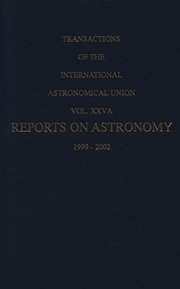No CrossRef data available.
Article contents
Astronomy Books in Spanish
Published online by Cambridge University Press: 25 April 2016
Extract
Great cultures have created language. They have discovered its strength among other reasons for education. For a long time the Bible was one of the few books available in western culture, its influence is beyond any doubt. Many developing nations have no science books in their mother tongue. They might carry a few translations but these do not convey the local culture so it is harder for students to grasp the concepts and to build on what they know. Books, even if they are extremely simple, should be written in local languages because that will facilitate the conveying of knowledge and the creation of scientific culture. In the books examples that pertain to every day local life must be given, in particular examples that have to do with women. Women play a central role in developing nations by child bearing; if they become literate they will influence enormously the quality of their children’s education, in particular their science comprehension. In México a collection that includes astronomy books has recently been edited by the National Council for Culture and Arts. The books are small and light, which encourages middle-school students to carry them around and read them while traveling in public transportation, such as the subway. Every other page is a new subject, that carries illustrations, abstracts and conclusions. The astronomy books are on search for extraterrestrial life, the stars and the universe. These books are distributed nation-wide and are inexpensive. They have been written by Mexican astronomers.
- Type
- Section 3: Initiatives in Astronomy Education
- Information
- Copyright
- Copyright © Astronomical Society of Pacific 2001


